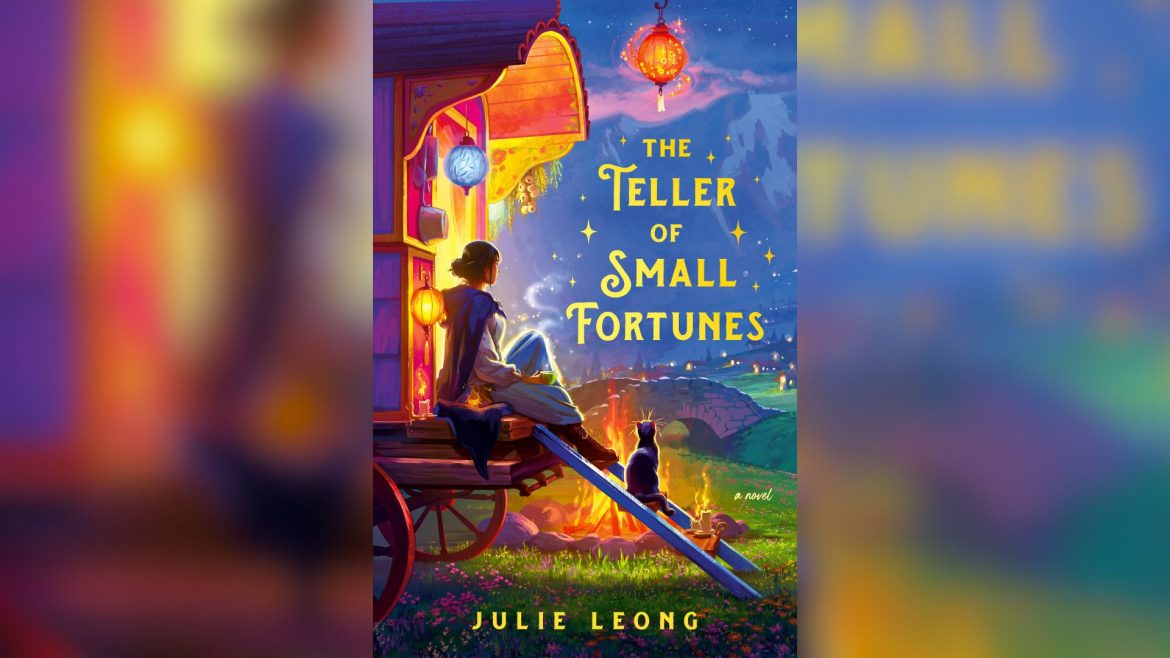The cover of American author Julie Leong’s debut novel, “The Teller of Small Fortunes,” is shown. The supposedly “cozy fantasy”, as described by the author, was released on Nov. 5, and despite its alluring premise, fell flat in terms of dialogue and plot. “The banter between the characters may get even the coldest-hearted to crack a smile, but beyond those jokes is flat, inauthentic dialogue,” Digital Editor Lea D’Angelo wrote. Photo fair use of Goodreads
American author Julie Leong released her debut novel “The Teller of Small Fortunes” to all major booksellers on Nov. 5. Despite the book’s nostalgic elements, its dialogue, plot and characters fall flat.
Open a fortune cookie, and out comes a cascade of crumbs, a flavorless cookie and a slip of paper with a predictable message at the end. Open a book, and out comes a wave of boring plotlines, flat characters, and inauthentic dialogue with a predictable resolution at the end.
That book? “The Teller of Small Fortunes” by Julie Leong, which was released to all major booksellers on Nov. 5. A home run for any nostalgic reader looking for a cozy fantasy but a hard miss for those who need a dynamic plotline to keep them engaged.
The novel follows Tao, a fortune teller traveling from town to town with nothing but her mule and wagon. Her solitary life ends when Mash and Stilt, two men looking for Mash’s missing daughter, Leah, and Kina, an enthusiastic baker, become a part of the journey, as well.
As the four — and their growing party of animals — travel throughout the kingdom, Tao starts to grapple with the shadows of her past and the weight of the futures she’s being asked to foretell.
Important lessons are discussed— loneliness, the power of friendship and family struggles— but all in a way that feels overdone and cliched.
Unfortunately, the plot is flatter than Kina’s hard, misshapen “croissants.” The banter between the characters may get even the coldest-hearted to crack a smile, but beyond those jokes is flat, inauthentic dialogue.
For example, after facing discomfort from Stilt’s continuous attempts at a relationship, Kina eventually tells him, “I’m sorry, Stilt. It’s just that I hardly know you at all, and I’d rather not be the target of your flirtations as we travel together.” While an important message, the awkward manner of this conversation, and many others like it, could be hard to look past to see the intended message.
Important lessons are discussed— loneliness, the power of friendship and family struggles— but all in a way that feels overdone and cliched. The overplayed “why would anyone want to be friends with me?” ideology Tao spews is impactful at first, but becomes borderline insufferable by the end of the story. Furthermore, while chapters showing Kina accidentally inventing fortune cookies and the group rescuing a stray cat are fun, they also start to distract from the more crucial conflicts and situations the characters are experiencing.
Despite the novel’s flaws, one issue Leong succeeds in portraying in a meaningful way is racism. Tao immigrated to the kingdom with her mother as a child, but despite the time that’s passed, the features of her face and the color of her skin cast her as an outsider in nearly every town she visits — a startling allegory to the discrimination many people of color face today.
However, even the prejudices Tao faces seem to have an immediate solution and are eventually put on the back-burner to allow for a rushed ending and predictable resolution.
For all its flaws, a fortune cookie can provide a sense of familiarity for some, with nostalgia baked into its thin shell, and the same could be said for this found family-coded novel. Those who enjoyed books like “The Land of Stories” and “Keeper of the Lost Cities” in middle school will likely find comfort in this book.
But, those looking for a more engaging read should probably take their reading palate elsewhere.

